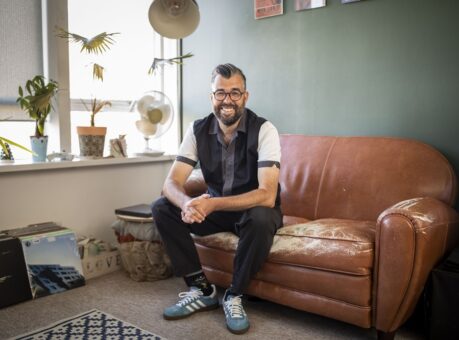
HACT, the charity of the social housing sector, has recently published a white paper highlighting the importance of social value and non-financial reporting. Transformation and development of the social housing sector, with a focus on the creation of social value through thriving communities, has been their raison d’etre for over 60 years. However, the emphasis on rigour and reporting discussed in this white paper demonstrates something of a step change in HACT’s ambitions for the sector.
Given that the social impact sector is still relatively young and undeveloped, those working in the sector recognise that there are issues about credibility, about veracity and about how its value is sometimes peddled as a public relations tool. HACT’s white paper states that for social impact to be recognised and prioritised, we must apply to it the same kind of procedures and assurances that we do in financial reporting. Only then can we expect it to be incorporated into business decision-making. Their vision is that social value – alongside other non-financial reporting – is part of a verified assurance process by 2028.
As such, HACT has outlined a roadmap to ‘assurance readiness’ that mirrors how financial disclosures are assessed and regulated. This roadmap can be followed by housing associations to make them ‘assurance-ready’, but its implementation should also bring the benefits of increased stakeholder trust and engagement, and higher levels of investment.
At Dot Dot Dot, where empty buildings are brought back into use as inexpensive, temporary homes, we are longstanding advocates of prioritising social value. The value our model creates is not only evident for our guardians, but also to the local community, and to the housing provider. It manifests in a multitude of ways:
- The creation of inexpensive homes for our guardians allows them to save money, and affords the time to work on the things that are important to them.
- Every Dot Dot Dot guardian commits to volunteering at least 16 hours of their time each month to good local causes.
Through guardianship and volunteering, guardians have gained new skills, friendships and communities, improved their confidence and wellbeing, and even set up new businesses. - Residents feel safer with fewer unsightly empty buildings around them, and enjoy the injection of friendly neighbours, who look out for each other and report instances of ASB or fly-tipping.
- Local businesses gain from enhanced footfall and spending.
- The whole community benefits from our Guardian Community Events Fund, which pays for events designed and run by our guardians to enhance the lives of the people living around them.
- Our property owner clients have saved time (and money) by avoiding the need for hard security and managing property repairs. That means they can turn their attention more fully to the needs of the communities they serve.
Further to the actual provisions and initiatives that we implement for all our clients, and in alignment with HACT’s recommendations, we invest heavily in providing substantial and meaningful information about the social value created. Our quarterly service summaries, outline not only the financial gains and savings enjoyed by our clients, but also:
- Statistics on just how many individuals we have provided with safe, secure and inexpensive housing.
- Detailed profiles of who these people are, the struggles they had been facing, and how they’ve benefitted.
- Data on how our guardians have spent their time, which good local causes they have volunteered for, and who in the community they have directly helped.
- Stories of the community events run by our guardians clearly explaining the benefits experienced by those in attendance.
As HACT put it in their white paper, the disclosure of this kind of human-centred, outcome-focussed information enables the completion of the ‘golden loop’ — where social value metrics are used to ensure that business decisions bring long lasting and positive change.
Read more about our impact, here.


